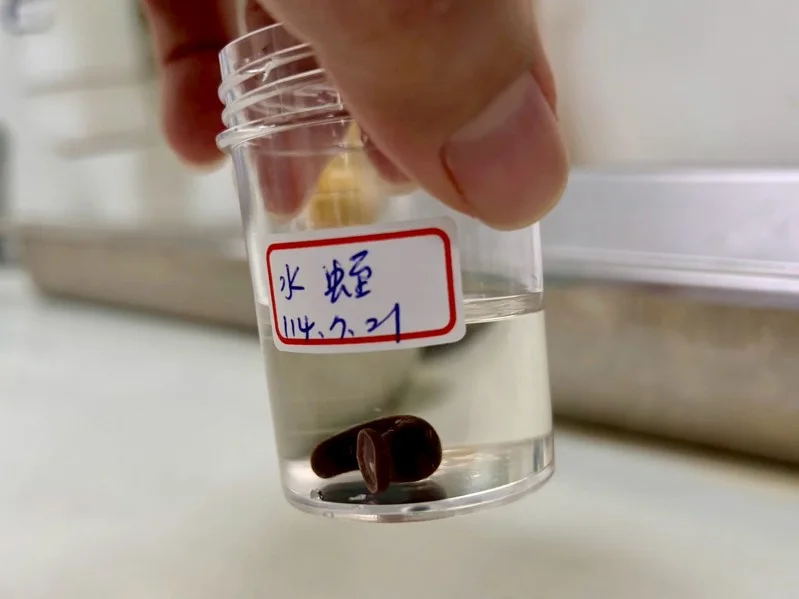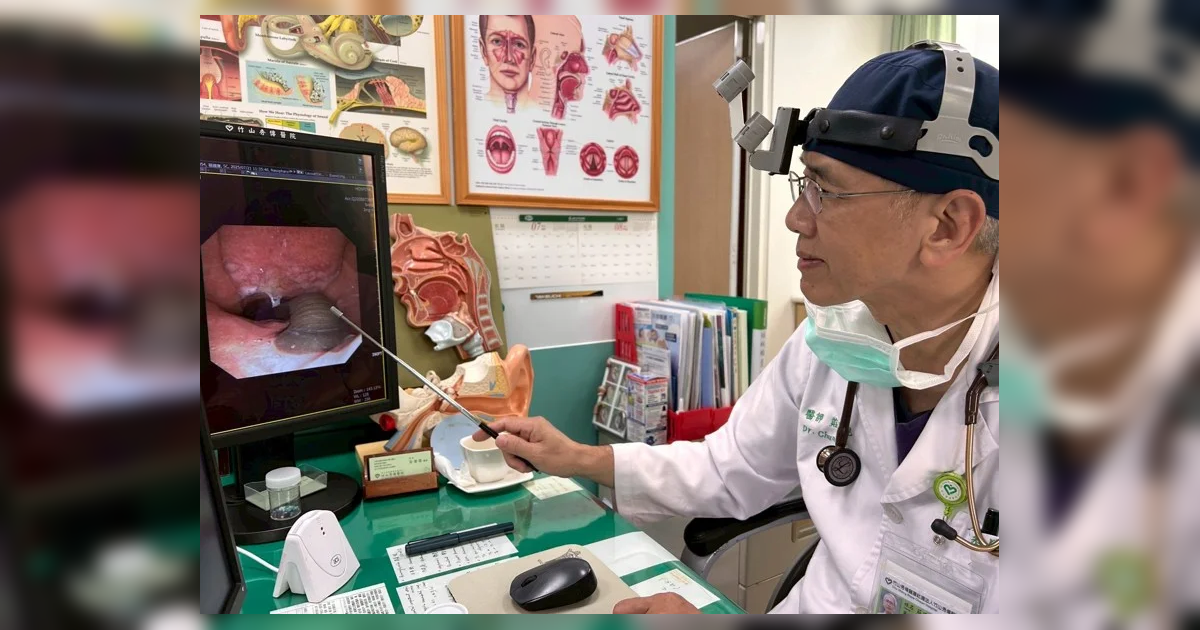Nantou, Taiwan — A 56-year-old man from Nantou got the shock of his life after discovering a live leech lodged in his nasal cavity, believed to have entered his body while he was cooling off with stream water during the hot summer days.
The man, surnamed Cai, had been feeling discomfort in his throat and was startled when he noticed a dark, wiggling shadow inside his mouth. Alarmed, he immediately sought medical help at Zhushan Xiuchuan Hospital.
Dr. Zhuang Bikun, the hospital’s director, used an endoscope to inspect Cai’s nasal passage and found a 4-centimeter-long leech attached behind his left nasal cavity and near the soft palate. Using a local anesthetic spray, Dr. Zhuang was able to make the parasite detach safely on its own — a method that avoids bleeding or the risk of leaving parts of the leech inside.
Cai recalled that he had splashed cold stream water on his face earlier to beat the summer heat and suspects that the leech entered his body during that time. “I thought it was just phlegm or a sore throat,” he said, still visibly disturbed. “I never imagined it would be a leech.”
According to Dr. Zhuang, this is not the hospital’s first encounter with such cases. While leeches have previously been found in patients’ nasal cavities, this is the first documented case of one attaching to the soft palate in the nasopharynx, highlighting that leeches may find more diverse locations to parasitize in the human body.

Leeches are commonly found in freshwater areas such as rivers, ponds, and rice fields. They can enter the body through the nose, mouth, or eyes, particularly when people are swimming, splashing water, or drinking from natural sources. Once inside, they attach to mucous membranes and begin feeding on blood.
What makes the situation more dangerous is that leech saliva contains anesthetic agents, making it difficult for people to feel their presence early on. By the time symptoms appear — such as nasal congestion, itching, hoarseness, or difficulty breathing — the leech may have already grown in size, potentially leading to life-threatening complications.
Dr. Zhuang strongly advised the public to avoid directly splashing untreated stream water on their faces. Instead, he recommends using a towel soaked in clean water to gently cool down. He also emphasized the importance of not attempting to remove leeches on one’s own, as improper removal could leave the mouthparts behind, leading to infection.
“Any foreign body sensation, persistent discomfort, or breathing difficulty after playing in freshwater should be checked by a doctor immediately,” Dr. Zhuang said. “Only through a proper endoscopic exam can we ensure safe and complete removal.”



